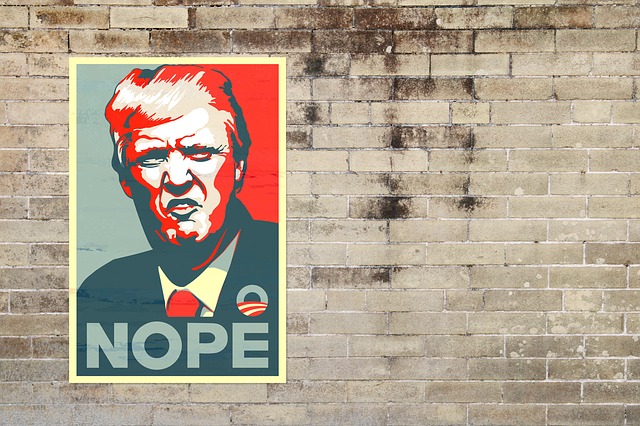
I was recently eating at a restaurant in Middlesex County, New Jersey. Two couples, likely on either side of 70, were sitting at the table in back of me which made it easy to hear their conversation. Naturally, the talk wasn’t all politics – there was a lot about children, golf, the food, etc. But the conversation inevitably tuned to politics – and Trump. They discussed the whole Russia thing and how the Trump’s will “get away with it” because, “they have money.” For what it’s worth, if they do get away with it the reason will be politics and Republicans in Congress putting partisanship before country in my opinion. But that’s ways down the road.
Back to the conversation. One woman asked the others, “Do you think he’s going to stay the whole four years?” One replied, “he may be may be around for eight.” At that, there was bemusement, if not outright incredulity that such a scenario could pan out but the woman defended her point by saying, “the public is compulsively stupid.” Besides, she said, the people who voted for him still love him. It’s those two points I want to dissect. While she’s not wrong on either, there’s very little margin for error given the dynamics of the current administration and in the fact that Trump won three million votes behind Hillary Clinton, and it would take the margin of error to get re-elected. At this point, the chances of that happening are probably about -15 and dropping, but 2020 is three years away. So let’s proceed down the trajectory that the next three years are like the last six months. Suppose the 58% disapproval rating – by far the lowest for a president this early in his tenure, remains close to that level. If that is the case we’ll almost certain to see a new president.
One, Trump will not take Michigan next time and I honestly doubt that, absent a major, super-credible third party contender that likely won’t be around, he’d win Pennsylvania or Wisconsin either. Iowa, despite an unexpectedly high margin, would probably my be problematic as well as the Hawkeye State is quintessential swing territory. Ditto for Florida.
More importantly, the election was decided by middle-of-the-roaders who were beyond disenchanted with either contender. Many, including a substantial number of Independents, made up their mind at the last minute and they went with Trump. They could just as easily have opted for Hillary – and it wouldn’t have taken much to give her the election, but new, 11th hour questions about her ethics were enough to overcome doubts about Trump on nearly everything else. Even if it’s true that the emails were overblown, it’s hard to see the Democrats choosing someone as ethically challenged again.
Third, the so-called Berniecrats will be fully on board next time, even if the Democratic primary creates wounds similar to last time. The reason is that Trump is now the incumbent and those voters will realize the gravity of the situation. That said, whomever emerges as the nominee will probably be devoid of the “likability” issues that plagued Clinton last time and that will make it easier for that person to lure in both left leaning Democrats and Independents. It would also seem that the small but potentially pivotal number of GOP voters who opted for Hillary would also stick with the Democratic nominee next time because after all, they made the painstaking decision to vote for her only because of visceral dislike of Trump. Given the last couple of months, it’s hard to see what can change to bring them home in 2020.
It is true – many of the “die-hard” Trump supporters would likely not abandon him for all the tea in China. The notion that he could probably shoot a man on Fifth Avenue and get away with it is probably true. But they by no means constitute a majority. All it takes is a little slippage – taking away healthcare or not fulfilling promises as far as jobs, veterans, etc. In other words, if the forgotten man stays forgotten or if he doesn’t make America great again. That begs the question – what about people who realize they made a mistake? Will they admit it? Perhaps not publicly or in front of their friends and family. But the good news is they don’t have to, that’s what secret ballots are all about.
Finally, what about the Democratic nominee? It is true that sometimes the party’s worst enemy is the party itself. What if they nominate someone who can’t win. It’s certainly not inconceivable given how close Bernie Sanders came to toppling the insurmountable Hillary (some working class whites would clearly have gravitated to Bernie but other independent leaning voters who backed Hillary may not have). Sanders is flirting with running again but Elizabeth Warren could also emerge as the standard bearer. I’m not making the case for or against anyone in this column nor am I saying any of them couldn’t win against Trump but it will make the odds of defeating him far less certain than it would be against someone less defined. But with the election of 2020 certain to be a referendum on the president more than anything, the party surely must want to make sure their ducks are in a row even if they think the man or woman they ultimately nominate will be the next occupant of 1600 Pennsylvania Avenue. If that happens, the woman’s prophecy about Trump being around for two terms will almost certainly not materialize.
















